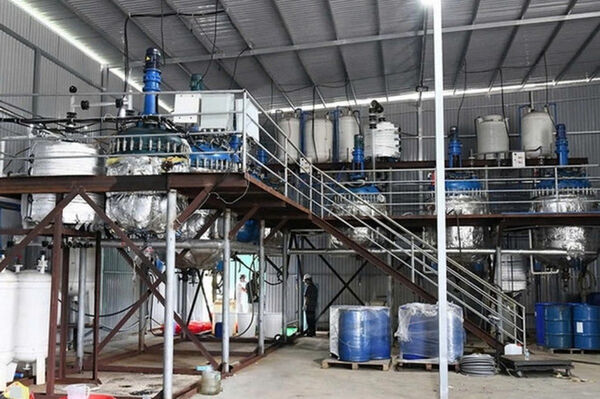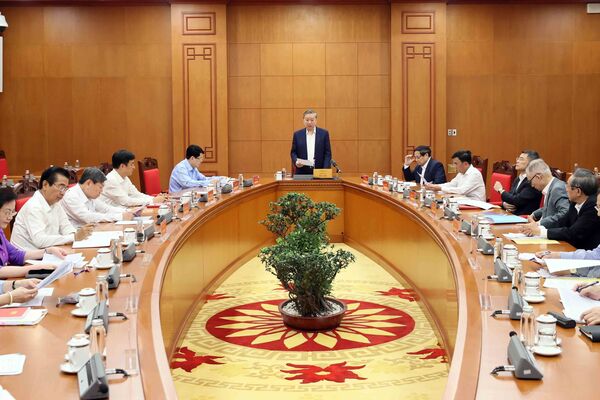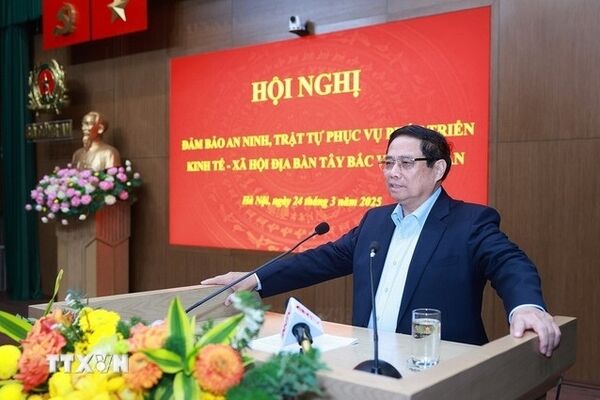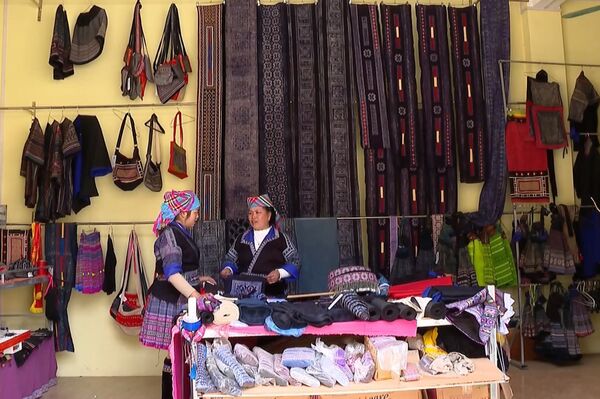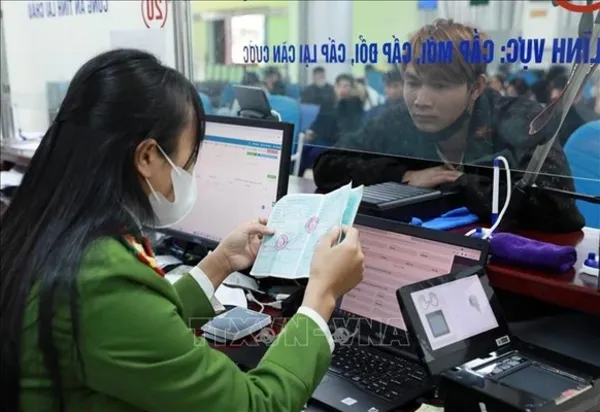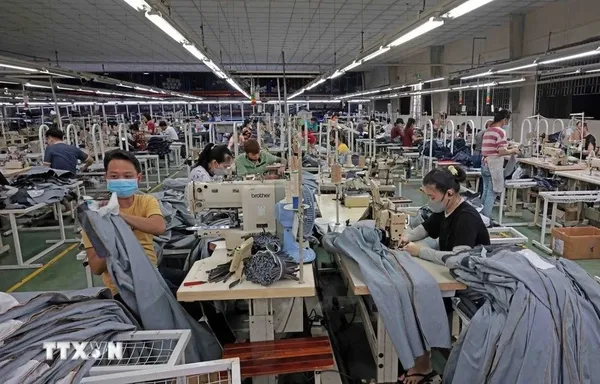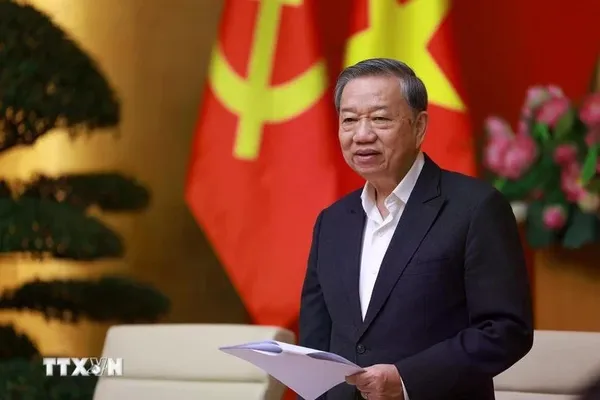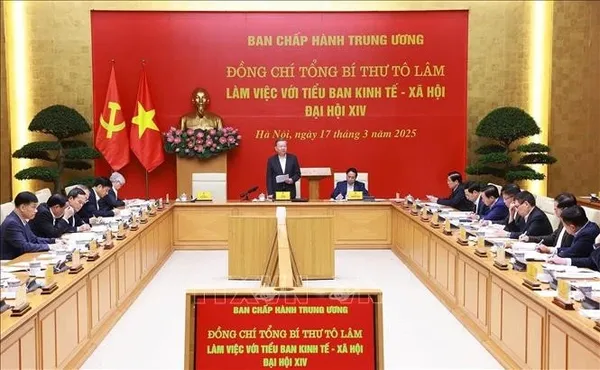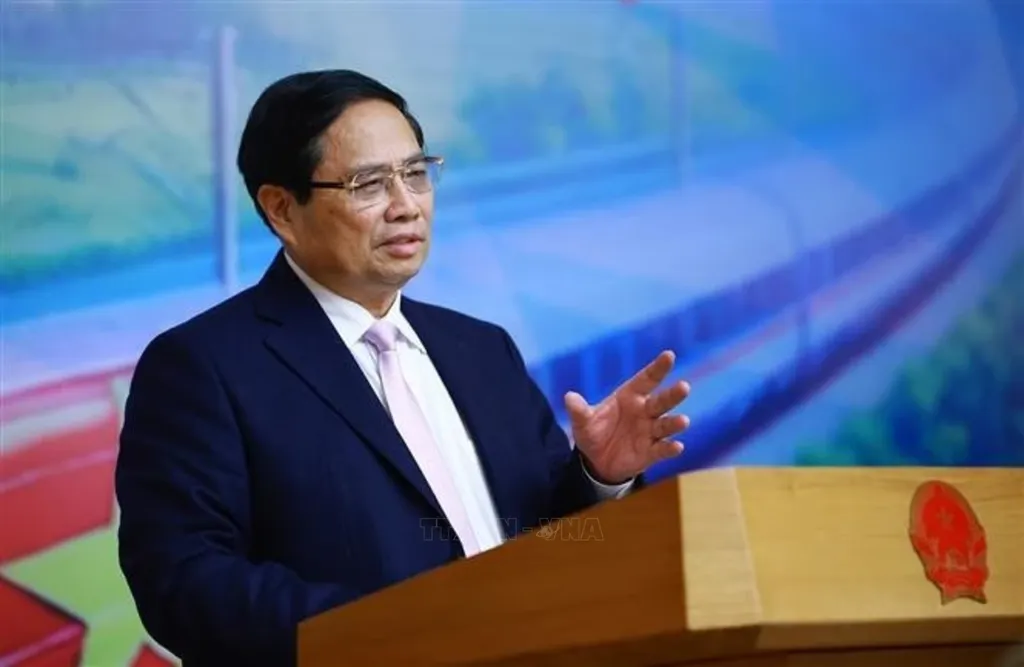 |
| Prime Minister Pham Minh Chinh addresses the meeting (Photo: VNA) |
Hanoi (VNA) - Prime Minister Pham Minh Chinh called on the entire nation to push beyond its limits in order to develop a robust railway industry while chairing the first meeting of the steering committee for key national railway projects on March 29.
The committee, headed by the PM, was established following Decision No.609/QD-TTg issued by the PM earlier this month, aims to oversee key railway projects, including the North-South high-speed railway and rail lines connecting Lao Cai - Hanoi - Hai Phong, Hanoi - Lang Son, and Mong Cai - Ha Long (Quang Ninh), as well as urban railway projects in Hanoi and Ho Chi Minh City.
The North-South high-speed railway was approved under the National Assembly's Resolution No. 172/2024/QH15 and will span 1,541 km from Hanoi to Ho Chi Minh City.
It is designed for speeds of up to 350 km/h, with an estimated cost of 1.71 quadrillion VND (approximately 67.34 billion USD ). The implementation period is planned from 2025 to 2035.
Meanwhile, the Lao Cai - Hanoi - Hai Phong railway project will have a standard gauge of 1,435 mm, serving both passenger and freight transport. The main line will span 390.9 km and branch lines will cover an additional 27.9 km.
The estimated cost for the project is 8.36 billion USD. Its first phase will involve the construction of a single-track railway and site clearance for a future double-track upgrade. The project is scheduled to be implemented between 2025 and 2030.
At the same time, the Hanoi - Lang Son railway connecting Hanoi with Bac Ninh, Bac Giang, and Lang Son provinces and providing an international rail link to China, will have an estimated length of 156 km.
The Hai Phong - Ha Long - Mong Cai railway will connect Hai Phong city with Quang Ninh province and link with China's rail network. The estimated length of the railway is 187 km.
Under the National Assembly's Resolution No. 188/2025/QH15, Hanoi plans to build 15 metro lines, while Ho Chi Minh City aims for 10.
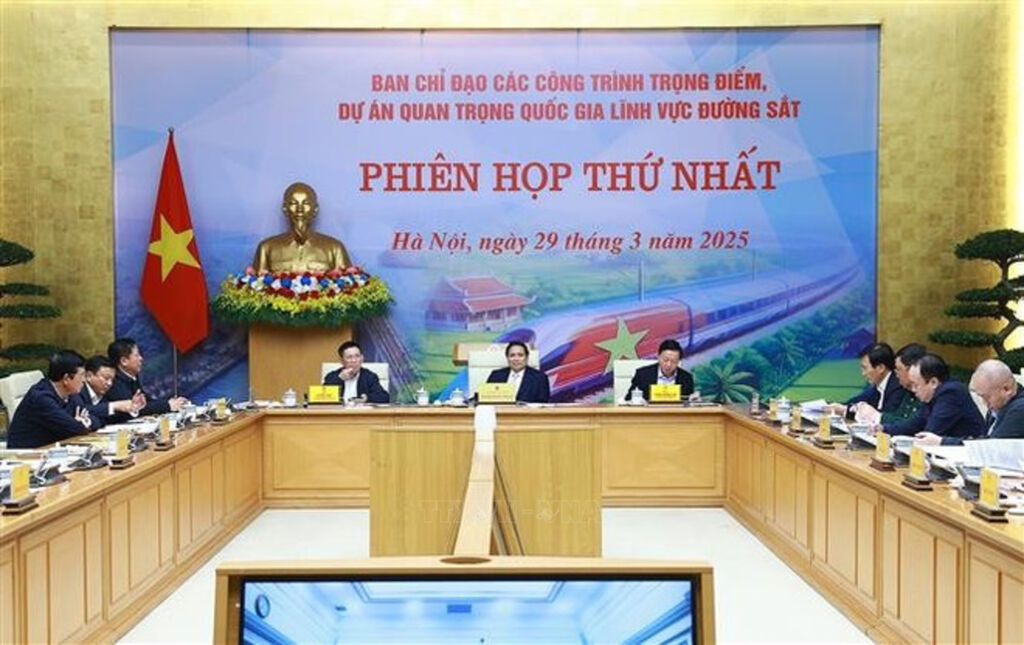 |
| An overview of the first meeting of the steering committee for key national railway projects on March 29. (Photo: VNA) |
PM Chinh underlined the significance of the projects and the development of the railway industry, stressing that achieving these ambitious goals requires a shift in mindset—moving away from outdated thinking and embracing self-reliance, national pride, and resilience.
He emphasised the need to establish a full-fledged railway industry, mastering technology, producing rolling stock, and developing an integrated railway ecosystem. He also highlighted the opportunity for Vietnam to harness this challenge as a catalyst for national growth and innovation.
To build a skilled workforce, he directed the Ministry of Construction and the Ministry of Education and Training to design a comprehensive human resources development plan for the industry. This plan includes domestic and international training, setting specific targets for each level and specialty, and establishing railway engineering faculties at universities, particularly for training chief engineers.
Furthermore, he called for the formation of major corporations, including private ones, to drive railway industry development.
The Government leader also underlined the importance of diversifying resources, including State funds, loans, infrastructure bonds, public-private partnerships (PPP), and Transit-Oriented Development (TOD) models, while ensuring strict financial oversight to prevent wastefulness and losses.
He assigned the Ministry of Science and Technology and the Ministry of Construction to establish technical standards, implement modern technology, and facilitate the transfer of advanced expertise. He also instructed the Ministry of Construction to review and propose necessary policy adjustments for submission to the National Assembly.
There must be a clear understanding of the importance of railway projects, he said, emphasising that efforts should be made to remove obstacles and expedite project execution, particularly in land clearance, which should be handled as a separate project, allowing local authorities to secure land while investors develop stations.
Intersectoral cooperation and accountability must be enhanced to ensure that responsibilities, timelines, and deliverables are clearly defined and strictly monitored. Strict penalties should be enforced for delays and inefficiencies, while those excelling in their duties should receive recognition, he stated.
Emphasising that railway projects must prioritise the public interest, improving transport services, reducing congestion, protecting the environment, and promoting sustainable development, the PM assigned specific tasks to ministries and agencies.
Particularly, he directed the the Ministry of Agriculture and Environment to develop regulations on the temporary use of forests for railway construction within September.
The Ministry of Construction is tasked with developing a decree outlining the criteria for selecting state-owned organisations or enterprises assigned with tasks, or Vietnamese organisations and enterprises contracted to provide railway industrial services and goods.
The leader approved the commencement of construction of the Lao Cai station and resettlement areas of the Lao Cai-Hanoi-Hai Phong railway in 2025. The Ministry of Foreign Affairs and the Ministry of Finance were instructed to engage China in negotiations over project agreements.
For the North-South high-speed railway, the PM ordered groundbreaking in December 2026. The Ministry of Justice will streamline approval procedures for a decree on railway design in early April 2025, while relevant ministries will promptly provide feedback, he asked.
For urban rail projects in Hanoi and Ho Chi Minh City, local authorities must reassess progress. The Ministry of Finance must review and approve adjustments to financing, including halting the use of official development assistance (ODA) and foreign concessional loans for Ho Chi Minh City's Metro Line 2 (Ben Thanh - Tham Luong), the PM said./.

